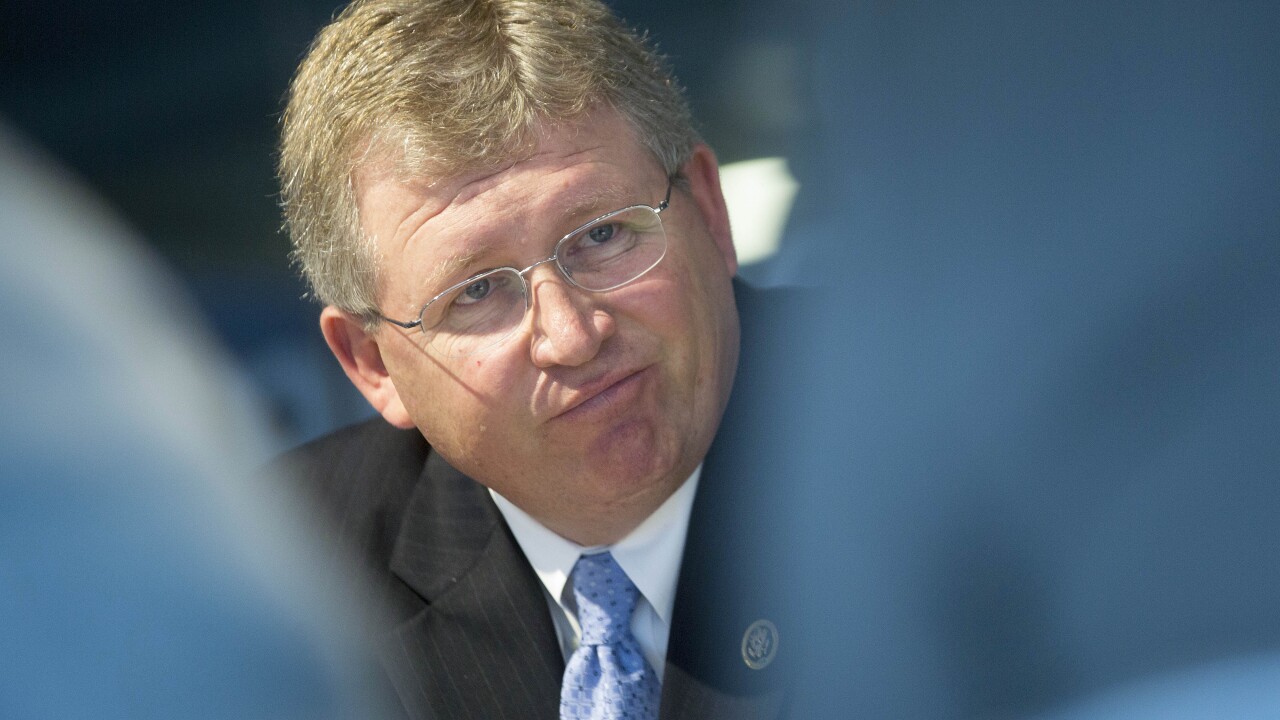Chase Manhattan Corp. said Monday that it won the rights to issue a credit card for Wal-Mart Stores Inc., which offers one of the biggest potential audiences for any cobranded program.
The card, dubbed the Wal-Mart MasterCard from Chase, goes on sale Oct. 14 in the retailing giant's 2,265 U.S. outlets. Applications also can be submitted over the Internet.
A MasterCard marketing official pointed out that every two days, the number of people visiting Wal-Mart locations is equal to the total U.S. population, making the deal especially valuable for the MasterCard and Chase brand names.
Wal-Mart is describing the card is an extension of its "everyday low prices" strategy: no annual fee and a fixed 14.48% interest rate on purchases. Balance transfers from competing cards get a 9.9% rate that, unlike many similar offers, stays in effect until the amount is paid off.
Aside from a basic interest rate about three percentage points below the national average, the Wal-Mart card also contrasts with other comarketing efforts in that there is no rebate provision.
While Wal-Mart emphasized its "straightforward" pricing, card industry observers said the nation's biggest retailer may have to change that.
"My guess is they'll sweeten it up in six months," said David K. Hunt, chief executive officer of AT&T Universal Card Services. Mr. Hunt, one of many industry leaders in Orlando for the American Bankers Association's annual card conference, added that consumers could find lower-rate cards elsewhere.
Wal-Mart's success "is going to be about what kind of value they can add to the card," said David Robertson, president of The Nilson Report, an industry newsletter. "They're positioning themselves so that over time they can provide additional savings at Wal-Mart stores. They have to add some pizzazz."
"It's more important to have a (low-price) philosophy and deliver on our promise than to have a short-term interest rate" above the national average of 17.55%, said Gene Ryzewicz, Chase's managing director of cobranded programs.
The Bentonville, Ark.-based, retailer, with annualized sales exceeding $100 billion, "is strong demographically in places we'd like to increase our penetration," Mr. Ryzewicz said, citing the Southeast and Southwest as examples. "This should give us additional, tremendous growth opportunities."
Saying "This is the first product we've ever put our brand on," Wal-Mart spokesman Dale Ingram called the card a way of building customer loyalty. "When you give customers a way to save money and do it with your name on it, it pays dividends. They'll use your store more often."
"It makes sense from Wal-Mart's perspective to come out with a card that says, 'We're low price,' not a lot of frills, not a lot of hard benefits, because that's what they do," said Michael Auriemma, a Westbury, N.Y., consultant. "In the credit card business, though, I'm not sure that card's appropriate for 1996."
The retailing sector has been active in a cobranding context. Fleet Financial Group has garnered 200,000 accounts for its Caldor Visa card in two years. First Bank System Inc. is testing a Visa card for Target, and Sears, Roebuck and Co. is issuing a cobranded MasterCard through its own bank. These cards pay rebates.
Wal-Mart has been retailing's most coveted holdout, attracting the advances of Chemical Banking Corp. and Chase before the two decided to merge, Mr. Ryzewicz said. After the merger "we became stronger from a resource point of view to do a program of this size."
The old Chemical developed the Shell MasterCard, one of the biggest cobranding programs. On a smaller scale, Chase issues cards for British Airways, Nynex, and the American Medical Association.
"Chase is interested in being aggressive in this marketplace to come out with a low-rate product whose appeal is going to be the mass market," Mr. Robertson said. "It's not flashy."
But Mr. Auriemma said, "There's no reason for a customer of Wal-Mart to take this and feel better about being a customer, and that's what cobranding is all about."
MasterCard adds Wal-Mart to Sears and others on its conquest list. Fred Gore, a MasterCard senior vice president, said the association has a long- term relationship with Wal-Mart. "We understand their philosophy, we understand every day low price. It's a big coup for us."
The partners plan an extensive national television and print advertising and direct mail campaign to begin early in October.
Customers who apply by Dec. 31 will receive a $10 savings certificate with any Wal-Mart purchase of $50 or more by April 30. Also, as a perk, cardholders can choose their billing dates.
National Processing Co. said it signed a five-year contract to provide Wal-Mart's bank card authorizations. The Louisville, Ky.-based merchant processor has been working with Wal-Mart for 12 years.





